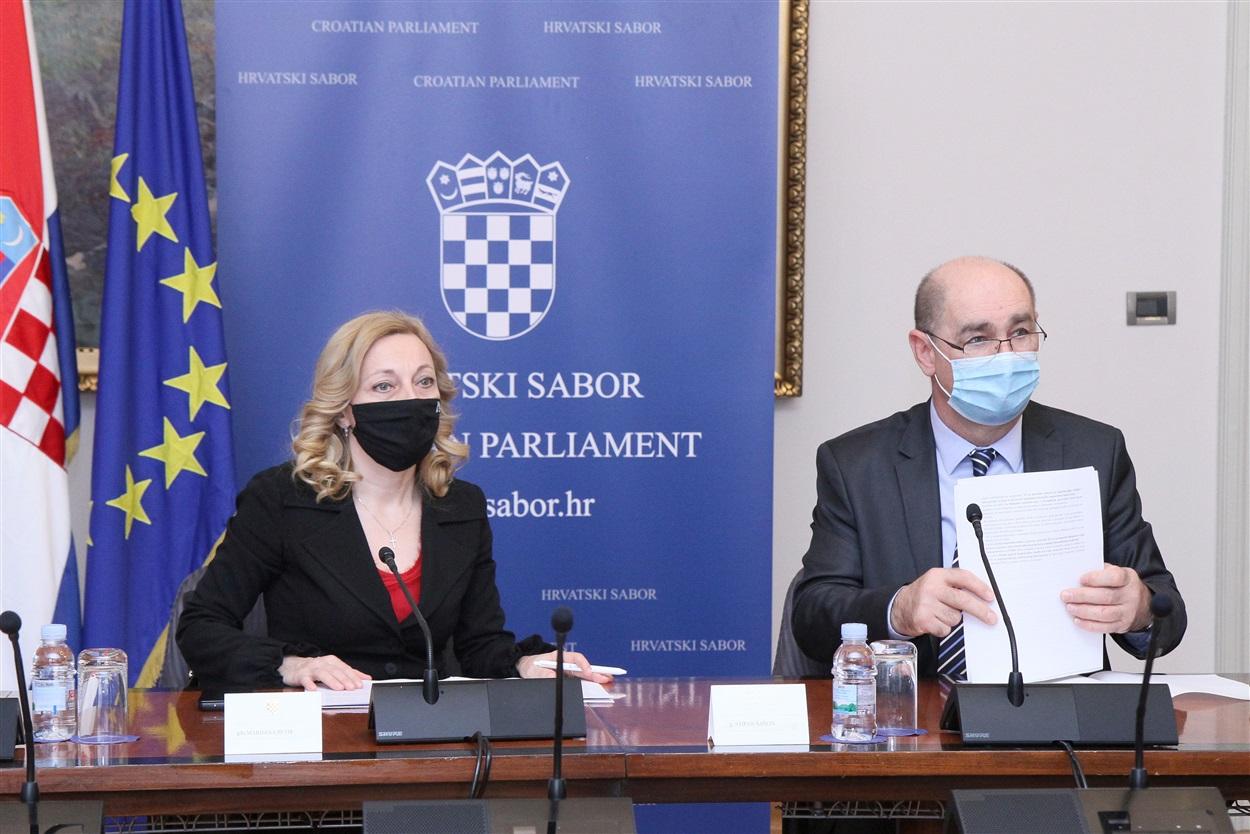
Zagreb - Marijana Petir, Chairwoman of the Agriculture Committee of the Croatian Parliament, and Committee Members Stipan Šašlin and Ljubomir Kolarek participated in the inter-parliamentary videoconference of committees responsible for agriculture organized by the Hungarian National Assembly within the Twinning Project “Empowerment and further support to the Parliaments of Bosnia and Herzegovina in EU integration tasks”.
The leading partner of the Project’s implementing consortium is the Hungarian National Assembly, while the Croatian Parliament and the Austrian Parliament are junior partners.
This was the second videoconference in a series of online events planned as part of the Twinning Project. It was attended by Hungarian, Croatian and Austrian parliamentary committees responsible for agriculture, forestry, rural development, and water management, as well as line committees of BiH parliaments (BiH Parliamentary Assembly, Republika Srpska National Assembly, and the District Brčko Assembly).
The discussion focused on the experiences in preparing and implementing activities in the field of the Common Agricultural Policy in the pre-accession period, the need to harmonize the BiH legislative framework with the acquis communautaire, the economic, social, political, and institutional adjustment, and the indispensable strategic planning in agricultural policy.
Marijana Petir pointed out that the negotiations in the chapter on agriculture included a large number of mandatory rules. It is therefore important that they are properly applied in the process of harmonization and effectively implemented and supervised by a well-capacitated public administration. She pointed out the need to produce integrated statistics of agricultural holdings at the level of BiH and to build the necessary administrative structures for the implementation of the Common Agricultural Policy. She underlined the importance of recognizing the goals and the needs of sectoral groups in agriculture in this process in order to work simultaneously on improving their competitiveness. She also mentioned the advantages of Croatia's EU membership, especially in terms of the support measures approved by the European Commission to help Croatia overcome the crisis caused by the coronavirus outbreak. She said that, on its European path, BiH could count on Croatia’s further support and the transfer of recent experiences in the field of the Common Agricultural Policy.
Speaking about the experiences in using European funds at the local level, Stipan Šašlin warned of the importance of conducting trainings on the methods and conditions of using European funds at the regional and local level. He also warned of the need for the primary agricultural producers to receive continuous education, information, and training about the importance of the ecological component of agricultural production.